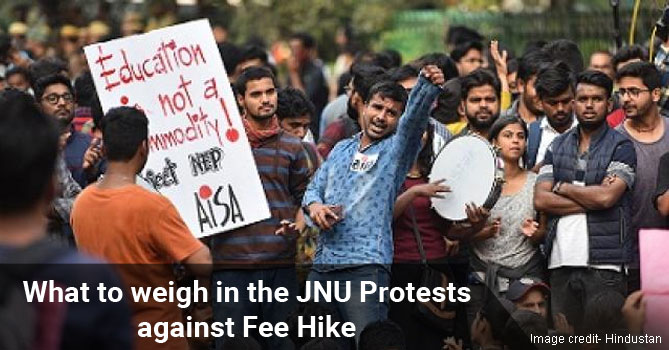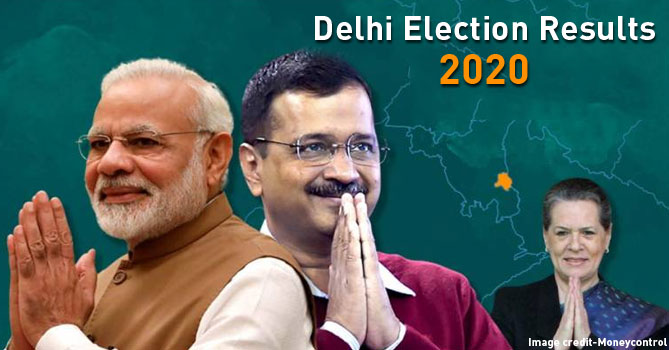
The ongoing agitation by Jawaharlal Nehru University (JNU) students over the recently imposed fee hike has been intensifying. The protesting students have come on the street and marched towards the Parliament. This has rocked the national capital on Tuesday and since then many have shared their opinions over the matter. While many believe that the protests are unnecessary and there are also many of those who believe that the subsidy should have remained, here are some of points for and against that you can use to asses the situation.
For the Protests
Quality education at a low cost
Jawaharlal Nehru University was established in 1969 by an act of the parliament to encourage bright students of middle and lower-middle-class citizens across the country to get quality education at low cost. Of late, the university has decided to steep the fees, which led to the ongoing agitation.
30-time hike in fees
The charge of the single occupancy room has gone from Rs 20 to Rs 600 while the fees of the double occupancy will be Rs 300 as compared to Rs 10. Such a huge increase automatically irked the students.
JNU’s noted alumni list
Since the objective of founding JNU was to create an inclusive education in India especially for the underprivileged, most of the students have humble family backgrounds. The premier university has produced scholars that are scattered all over the world and they represent India in some of the world’s greatest positions. Abhijit Banerjee, the winner of this year’s Nobel prize in Economics, got his education from JNU.
Students blame JNU’s administration
The agitating students are dissatisfied with the way the institution’s administration is handling the situation. Students blame them for not cooperating to resolve the issue peacefully.
Opposition raises voice
Lending support to the protests by the students, the Opposition members have also raised their voice in the august House against the change in the fee structure. They raised their voices against the steep increase in the fees and interrupted the parliamentary proceedings and blamed the government over this hue and cry.
Subsidy in education
As India looks forward to several welfare schemes and aims to upgrade its education infrastructure, many are in the favour that education should be subsidised. This will make education in India more prone to easy access for students from every social stratum.
Against the Protest
JNU loses sheen
The university is renowned for producing researchers and scholars. But recently, the question of productivity in the university has become debatable. There are also opinions that its students are anti-national and are more inclined towards their political motivations than academics.
Seniors occupy hostels
Due to the subsidised food and accommodation, there are many students over-staying in the hostel beyond their permitted time. Old-timers become hurdles for the newcomers and new students must live in rented rooms surrounding the university. Many opinions have come up which say that this should be strictly checked, and misuse of the hostel facility should be scrapped at the earliest.
Obscene messages on VC’s office walls
Protesting students of the university crossed all the hurdles and vandalised the statue of Swami Vivekananda inside the campus. Apart from this, they have also written some obscene messages on the walls of the Vice-Chancellor’s office.
Openness in campus
JNU campus is a hub for boys and girls to spend their leisure time together. Cases of sexual exploitation and harassments have been growing inside the campus.
Solve issue peacefully
As far as fee hikes are concerned, it is a common and standard procedure. Students should not be creating ruckus on the street.
The agitation by the JNU students may send a wrong message to the other institutions of the country on how to solve its internal matters. Dissent is required for every society to progress, but dissent can come only with dialogue and not necessarily with just violence. Hopefully, this matter will see an amicable end.





